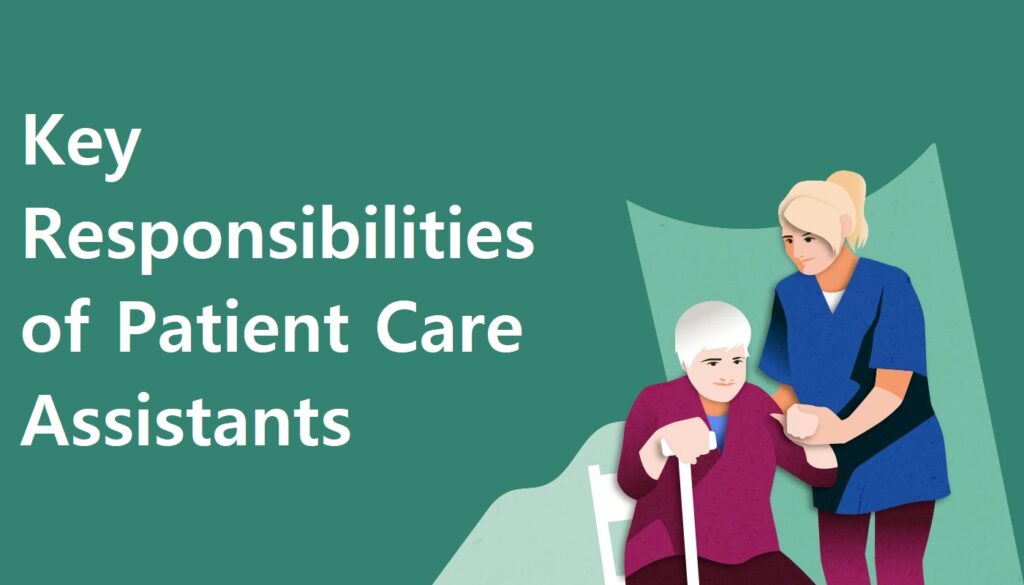
Patient Care Assistants play a vital role in healthcare settings by providing direct care and support to patients. Their responsibilities encompass various aspects of patient well-being and comfort. Here are some key responsibilities of Patient Care Assistants:
1. Basic Patient Care: Patient Care Assistants assist patients with activities of daily living, including bathing, dressing, grooming, and toileting. They help maintain the patient’s personal hygiene and comfort.
2. Mobility Assistance: They assist patients in moving and transferring, especially if the patient has limited mobility or is bedridden. This may include helping patients walk, repositioning them in bed, and using mobility aids.
3. Vital Sign Monitoring: Patient Care Assistants often measure and record vital signs such as blood pressure, temperature, pulse, and respiratory rate. They report any significant changes to the nursing or medical staff.
4. Nutritional Support: They may help patients with eating and drinking, ensuring that patients receive their meals, assisting with feeding, and monitoring food and fluid intake.
5. Medication Assistance: Depending on the facility and their training, Patient Care Assistants may help patients with prescribed medications, such as administering oral medications or applying topical treatments.
6. Comfort and Emotional Support: Part of their role involves providing emotional support to patients. This includes active listening, offering companionship, and providing reassurance to patients who may be anxious or in pain.
7. Safety and Infection Control: Patient Care Assistants help maintain a safe and clean environment for patients. They follow infection control protocols, ensure patient safety, and may assist in keeping patient rooms tidy and organized.
8. Record Keeping: They maintain patient records, documenting the care they provide, patient responses, vital signs, and any incidents or changes in condition. Accurate record-keeping is essential for effective patient care and communication with healthcare professionals.
9. Communication: Patient Care Assistants communicate with patients, their families, and the healthcare team. They may relay important information about the patient’s condition and any concerns or requests.
10. Assisting with Medical Procedures: In some cases, Patient Care Assistants may assist with medical procedures, such as wound care, catheter care, or taking specimens for testing. They follow proper procedures and guidelines under the supervision of licensed healthcare professionals.
11. Patient Education: They may provide patients and their families with basic health education, such as information about prescribed medications, post-discharge care, and self-care techniques.
12. Transporting Patients: Patient Care Assistants may be responsible for transporting patients within the facility, whether it’s for diagnostic tests, procedures, or simply moving patients to different areas within the hospital.
13. Collaborating with the Healthcare Team: They work in collaboration with nurses, doctors, and other healthcare professionals to ensure the overall well-being of patients. Effective communication and teamwork are crucial.
14. Adhering to Regulations: Patient Care Assistants must adhere to legal and ethical standards, maintain patient confidentiality, and follow facility-specific policies and procedures.
Overall, Patient Care Assistants play an integral role in providing high-quality, compassionate care to patients. Their responsibilities are essential for the well-being and comfort of those they serve, and they often form close relationships with patients and their families.

